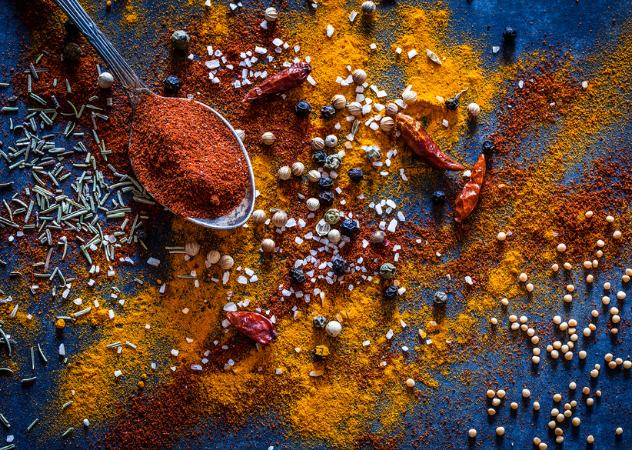The idea of using food as medicine is widely accredited to ancient Greek physician Hippocrates. Yet this idea may be more relevant than ever in developed countries, where poor diet is linked with many chronic health conditions and premature death.
Nutrition research is helping scientists better understand how this link works. Nonetheless, health is complex: some argue that equating food with medicine is an oversimplification, with the potential to obscure important issues such as the role of physical activity, stress and medical management of chronic health conditions.
What is not in doubt is that something needs to change. According to Australia’s Department of Health, chronic conditions are the leading cause of illness, disability and death in Australia. A chronic condition affects one in two Australians and they are associated with about nine in 10 deaths. Meanwhile, New Zealand’s 2019/20 Health Survey showed 4.4 percent of adults had been diagnosed with ischaemic heart disease and 5.9 per cent with type 2 diabetes, while only 54.3 per cent met the vegetable intake guidelines.
Recognising the important role of food in wellbeing, Australia’s and New Zealand’s governments have created dietary guidelines designed to promote health and reduce the risk of diet-related conditions and chronic diseases, including obesity, high cholesterol, high blood pressure, cardiovascular disease, type 2 diabetes, and some cancers.
These guidelines explain the types and amounts of foods healthy people should consume, and which foods should be limited.
Some harmful culprits are well known, such as excessive salt, sugar, alcohol and saturated fat. More recently, ultra-processed foods have been identified as a separate risk, explains accredited dietitian and nutritionist Lisa Renn. This includes foods like packaged snacks, carbonated drinks, confectionery, mass-produced packaged breads, margarines, spreads, and sausages.
The easiest way to identify these foods is to check the ingredient list, Renn says. “If there’s a lot of things you couldn’t easily source or make in your own kitchen, then it’s probably ultra-processed. This includes some foods that pretend to be healthy snacks, like protein bars.” Renn points out certain processed foods can be healthy. “We have to process some foods, like oats and milk, to make them safe and edible,” she explains. “It’s the strange, chemical-sounding ingredients that aren’t good for you.”
Good/bad choices
Disturbingly, statistics show that on average, Australian adults get nearly 36 per cent of their kilojoules from discretionary foods we should be eating only occasionally and in small amounts, Renn says. For children, that figure is 41 per cent.
In contrast, diets in so-called Blue Zones – where people live longer, healthier lives – are predominantly plant-based, says New Zealand registered nutritionist Nikki Hart. Furthermore, people in these areas only eat until they’re 80 per cent full, emphasising that quantity is also important. “They have a more mindful eating practice,” Hart says, “whereas in Westernised countries we tend to eat while we’re distracted, so your brain hasn’t caught up with your gut that you’re actually overeating.”
She adds part of the problem is consumer demand for foods that last longer, which necessitates more processing and preservatives, and for foods out of season. “Just because we can import things doesn’t mean they’re right for us to be eating. We need to focus on eating locally so we’re eating the right food that’s growing in the environment at that time.”
Another evolving area is examining the importance of preparing food at home. A study published in the Journal of the Academy of Nutrition and Dietetics, for example, found frequent consumption of meals prepared away from home was significantly associated with an increased risk of all-cause death.

Renn says foods cooked at home are likely to be lower in salt, sugar and saturated fats. She advises shopping for fresh food in season (frozen fruits and vegetables are also fine), cooking at home, and preparing healthy meals in advance for busy weeks.
Regarding how food impacts health, Renn says the gut microbiome is increasingly being implicated. “If your gut colony is healthy, it produces healthy chemicals which decrease the risk of things like heart disease and diabetes developing in the first place.”
In terms of using food to treat existing health conditions, oats and flaxseeds can claim a benefit in reducing cholesterol, Renn says. Soluble fibre like psyllium husk, combined with adequate physical activity and fluid intake, can help manage constipation and diarrhoea. Prebiotics (which provide food for the gut colony) and probiotics are another emerging area. Renn says feeding your gut colony well – with foods like onion, garlic, wheat, apples and pears – will support bacterial diversity and numbers and have a positive health impact. Nuts and seeds also have health-promoting benefits, including helping you maintain a healthy weight and reducing your risk for developing heart disease and diabetes.
Another category is functional foods, such as cereals which are “supercharged with higher concentration of naturally occurring plant sterols to have a good impact on cholesterol”, Renn explains.
Hart agrees that functional foods and beverages are a growing and positive health trend. Turmeric, for example, “was touted as anti- inflammatory and the next thing you know it’s been added to everything”.
She also stresses the importance of including health-promoting foods in your everyday diet, as is done in more traditional diets. In India, for example, people eat turmeric-roasted cauliflower and prostate cancer rates are low, Hart says. “Cauliflower contains sulforaphane, which has anti-tumour growth progression properties. Coupled with the anti-inflammatory action of turmeric, this could explain why Indian males exhibit such a low prostate cancer incidence.”
Spice it up
Herbs and spices are another example. “We used to simply think of them as condiments, but we now know they convey some very important properties when it comes to gut health and anti-inflammatory responses.”
Hart also suggests thinking about ways to add ‘microgreens’ such as watercress and sprouts into your diet. “Say you’re having poached eggs on toast, adding microgreens to that dish will make it better than just eggs on toast.” Hart also highlights the importance of diet for brain function. “People often think, ‘I don’t want heart disease or cancer’, but what about your brain? About a litre of blood goes to the brain every minute so if you’re eating a poor diet, that’s going to affect brain function long-term.”

Hart says the Blue Zone research also revealed low population levels of dementia. “I think we need to see dementia as more than something that happens to the elderly. We could start thinking about how to mitigate it by getting people to change their diet before they get older.”
Sometimes omitting foods can be beneficial for health, Renn notes. For people with irritable bowel syndrome (IBS), for instance, the Low FODMAP Diet developed by Monash University can help control gastrointestinal symptoms by limiting foods that contain highly fermentable sugars not tolerated by IBS sufferers, but very healthy for the rest of the population.
To ensure your diet remains nutritionally adequate, it’s important to seek advice from a professional such as an accredited practicing dietitian before omitting food groups, Renn advises. She also stresses the importance of a healthy diet overall. “No single food is going to be the cause of a person being healthy or unhealthy. You can eat all the blueberries you like, but if you’re eating them alongside a heap of takeaway, they’re not ‘super’ enough to offset that.”
Furthermore, some believe likening food to medicine is outdated and oversimplified in a world where knowledge about health, nutrition and disease is more sophisticated than in Hippocrates’ day.
One of these is New Zealand personal trainer and nutritionist Lauren Coleman. “It’s easy for us to think our diet’s the issue and that if we weren’t eating all these crap foods, we’d be so much healthier,” she says.
“Food definitely plays a role in health and disease prevention, but it becomes blurry when people are saying you can use food to treat a disease state. It would be irresponsible to tell someone to trial a ketogenic diet to cure cancer or just go vegan and you’ll never have a health problem again. Disease is extremely complex. It can be due to genetics, stress or other lifestyle factors. It’s unfair and quite shaming to blame bad diet for ending up with a particular disease.”
Importantly, diet isn’t an alternative to medical management. As Coleman warns, “If someone needs to take insulin or blood pressure medication, you can’t say ‘you won’t need that if you cut the salt or sugar out of your diet’. That could make them a lot worse off.” Problems can also arise when staunch advocates of nutrition dogmas turn up their noses at evidence-based national nutrition guidelines, Coleman says.
“We can’t simply say everybody would be better off on a low-carb diet or a vegan diet,” she says.
“Some people get too wrapped up in specific food groups, such as carbs. If you were eating six servings of carbohydrates and that was muffins, pizza slices or burgers every day, that would not be very healthy. That’s completely different to eating more health-promoting foods with fibre and nutrients like brown rice, wholegrain bread, oats and potatoes.”
One size does not fit all
She says some people will do better on diets different to those of national guidelines. “For example, there’s a lot of evidence suggesting someone with diabetes would do quite well on a lower carbohydrate diet. But if your friend goes on a low-carb diet, loses a few kilos and starts going on about how much energy they have, that doesn’t mean everybody is going to feel great on a low-carb diet.”
Furthermore, it’s vital to consider your relationship with food, Coleman says. “If people become obsessive, it can have a more detrimental effect than if they were a little more relaxed. That’s why there’s no such thing as the perfect diet. If somebody were that meticulous about avoiding anything unhealthy, that would mean cancelling social events, isolating themselves, maybe even having panic attacks about the thought of eating processed foods.”
She adds choosing to eat health- promoting foods is an act of self-love. “Most people can relate to how awful you feel if you normally eat a relatively balanced diet but have a weekend away and eat nothing but takeaway, ice cream and alcohol. When you come back, not only does your body feel gross, but a lot of people experience low mood and low energy.
“You can imagine why people who typically have poor diet quality in general – eating a lot of takeaways, fatty, processed and sugary foods, and not a whole lot of vegetables – might experience symptoms of depression and anxiety.
“If people start fuelling their body with healthy foods, it can make a real difference to their mental health.”







